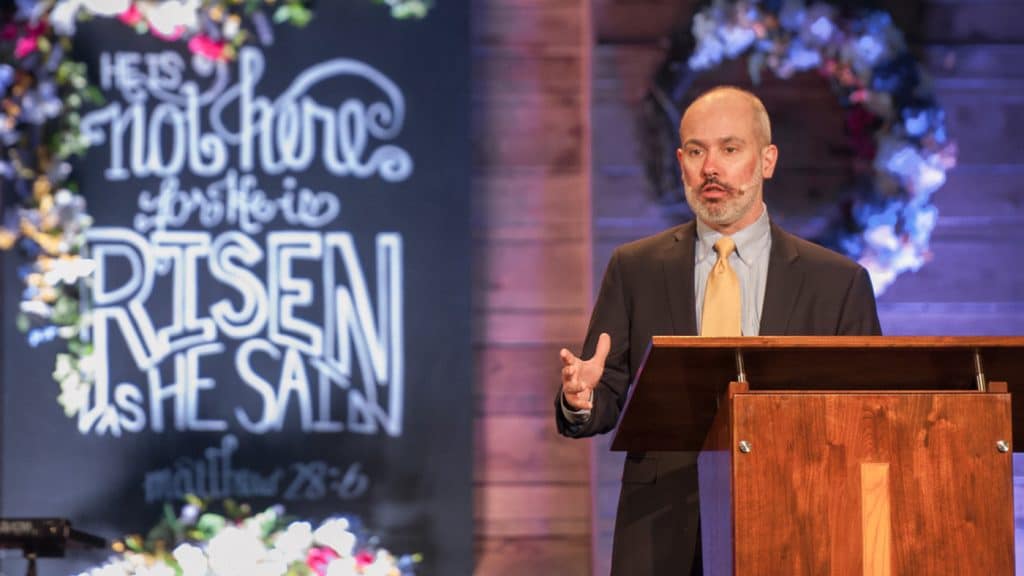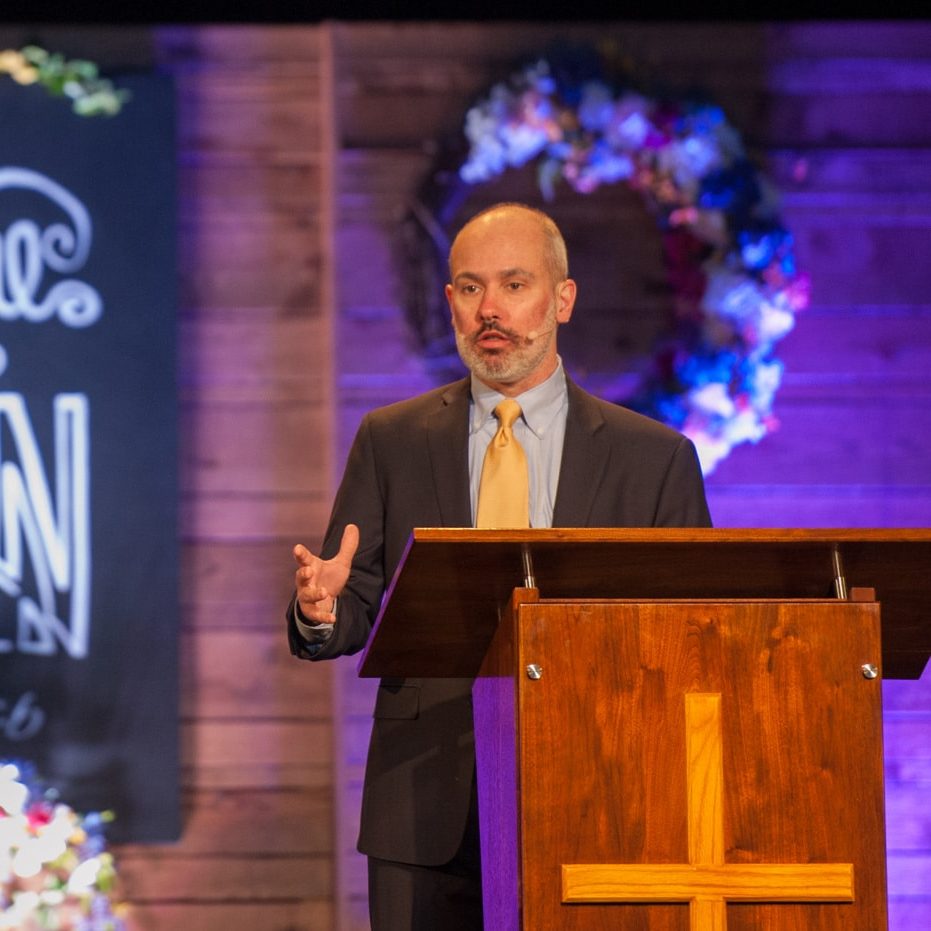Josh Patrick puts flesh on 1 Peter 3:15, which says to “always be prepared to give a reason for the hope you have.” Find strength.
The following is an excerpt from chapter 7 in Josh Patrick’s book Living Hope. Get this book for 50% off one copy and 60% off two or more for a limited time with coupon code “LIVING” when you purchase on our site here.
The hope Jesus gives is like a flame that can never be put out. It is untouchable, indestructible. It is resilient and glorious. It makes us shine like stars in the sky. In fact, in many cases, Christian hope is so distinct and so otherworldly that it often demands an explanation.
In 1 Peter 3:15 the apostle Peter says, “Always be prepared to give an answer to everyone who asks you to give the reason for the hope that you have.”
The phrase “give an answer” literally means to make a defense. It’s where we get the word “apologetics.” It envisions a scenario in which we’re responding to a question. In this case, Peter must be assuming that the inward hope of Jesus’ followers results in lives that are very different from those who don’t follow Jesus. Our lives should be so noticeably different that they prompt questions.
So be prepared to give the reason for the hope that you have.
How exactly can others witness our hope? Hope is invisible. By definition, you can’t see hope, as it is not a tangible reality. Well, Peter gives us a strong contextual clue in verses thirteen and fourteen:
Who is going to harm you if you are eager to do good? But even if you should suffer for what is right, you are blessed. Do not fear their threats; do not be frightened. (1 Pet. 3:13–14)
The reason people, specifically unbelievers, would ask about our hope without our slamming it down their throat, the reason they would initiate a conversation about hope, is because they see in us a strange and peculiar fearlessness. Or maybe a better way to put it is this:
They see that we aren’t controlled by the same fears they are, and our absence of fear is striking.
A Story of Hope
Once when I was at the Vanderbilt-Ingram Cancer Center getting chemo, I had an interesting hope-explanation encounter. I could tell early on that it was going to be a long day, and I knew I had two options: I could either partner with God and bless people, or I could go crazy. I chose to partner with God that day, by his grace.
I saw her right by the elevator. She was in her mid-to-late fifties, with graying hair at the temples, and she was shaking. She was crying, but she didn’t look sick. I went to my seat, opened my laptop, and started writing and reading and doing what I do. I felt a strange prompting: You may need to talk to her. This may be the open door to encourage somebody you’ve prayed for. But I didn’t want to force it. I didn’t want to be the guy to go over to a crying woman and say, “Are you okay?” Clearly, she was not. I didn’t want to have a weird, forced conversation.
I went inside the restroom to wash my hands, and I said to God, “If you want me to talk to this lady, then I want to know it.” When I came out of the restroom, she had wheeled her husband over, and they were now sitting right beside me.
He was not doing so well physically. He was there, and he was struggling. She had half a dozen bags around her, full of notebooks, pillows, cups, and food. I started chatting with them, asking how the day was going. The moment I said something to her, she started crying uncontrollably.
She said finally:
“My distractions aren’t working.”
I asked, “What do you mean?”
She said, as she was pulling stuff out of her bag, “I brought all this stuff with me. I’m the bag lady.” She had books, her laptop, her iPad, her phone, some scrapbooks, and some work materials. She said, “This is not happening to us. I can’t be here anymore. The only way I know how to get through this is to be distracted.”
I thought, I can either tell her in this moment, “Well, Jesus is the answer to this,” or I can get in the ditch with her and say, “You know, I’ve been there. I know what this feels like, and it’s really hard.”
I chose to go down that latter road with her. At the end of our conversation, she said,
“Has anybody ever asked you about your hope?”
Now I ask you: Has anybody ever asked you that? Have you ever had to explain why you don’t overreact to life?
Our posture of non-anxious trust in God is provocative. It is attractive. We are free from being troubled thanks to God’s grace and the power of the Holy Spirit that raised Jesus from the dead. We are—day by day, moment by moment—outgrowing fear. In him, we are able to live with a non-reactive spirit, and this is confusing to most people.
We’re not afraid of the same things they’re afraid of.
What does the world put their hope in?
Most often it is safety, comfort, money, acceptance, or health. What about the followers of Jesus? Where’s our hope? Our hope is fixed on a person who has overcome death. He has defeated every enemy. Sickness? He beat that one. Water? He walked on it. Blindness? Conquered that. Every time he encountered an evil spirit or a demon, he was able to cast it out. Religious persecution? Hypocrisy?
He was able to kick those into the darkness and expose them as inauthentic. People were coming against Jesus left and right, but he could not be defeated.
The last enemy is death.
Jesus emerged from the grave. When people put their hope in and bet the farm on the resurrection of Jesus, the way they engage with fear is completely altered. It changes everything. We cling to hope in the middle of the mess, and that doesn’t make sense—but for Jesus. Our souls know that it is indeed in him that we live and move and have our being, so we trust and strive to follow him.
We have a living hope because we have experienced the goodness of God on earth—despite the suffering, despite the troubles, despite living so far removed from the actual events of Christ’s resurrection.
But our tone should be humble when somebody does say to us, “Why aren’t you freaking out right now? Why aren’t you anxious? Because from where I’m standing, you have reasons to be anxious.” There’s no room for pride because we didn’t do anything; Jesus did.
This is an excerpt from chapter 7 in Josh Patrick’s book Living Hope. Read more when you get this book for 50% off one copy and 60% off two or more for a limited time with coupon code “LIVING” when you purchase on our site here.


